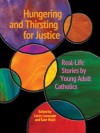A Reading Vocation
"I Must Read, Read, and Read. It is my Vocation." - Thomas Merton
This is where I chronicle my reading life. I also blog about writing at Lacey's Late-night Editing.
Are You a Success? By Whose Standards?
I’m still a little bleary-eyed and disjointed from odd train schedules and driving throughout the night — I just got back from the annual Call To Action conference, where I came up with ideas for at least two blog posts for Young Adult Catholics, so overall, I think it was a fruitful trip.
Between audiobooks on the drive and traditional books on the train (not to mention a 7-hour wait at the station), I also finished three books–one of my favorite parts about traveling–including APE: Author, Publisher, Entrepreneur, which I’ll review here by next week.
On the drive home this morning, I was listening to the new biography on Jim Henson. I’m always a bit nervous when I pick up biographies of creative geniuses, afraid that I’ll feel woefully inadequate by the time I’m done. I thought that would be the case with this one; Jim was already well on his way to the legacy that would become The Muppets by the time that he was in college. But as I follow the story more deeply, I realize that success to the rest of the world and success to Jim weren’t necessarily the same thing. Jim’s characters are recognized and beloved around the world, yet he spent years trying to break beyond being “a puppet guy”–even before he worked on Sesame Street, launched The Muppet Show, or created any of his feature-length films. He wanted to expand into doing “arty” films, including experimental videography, live action, and ambiguous messaging. He only attained moderate success in that arena, with many of the projects he wrote and devoted himself to during this time failing to find an audience. Those that did find an audience met with mixed reviews, and have faded into obscurity today.
It reminded me of the article I found most intriguing in Write Good or Die, “Success” by Kristine Kathryn Rush. In it, she talked about how many writers who are outwardly successful didn’t consider themselves successes because they hadn’t achieved what they really wanted to do.I can relate to this. I used to think being published in something besides a student journal would designate me “successful.” When I hit that milestone at age 21, I wanted to have something published in a book, then write for a wider audience, then publish fiction. Around this time last year, I even ended up with my name on the cover of a book (although I didn’t write it), and I felt as though I were a “real” writer for about a week.
There are other external measures of success, too. While I’ve never made a ton of money, I’ve been privileged to find work I enjoy ever since college, not to mention work that is in my field. My current combination of working part-time as an employee for a news organization and freelancing to round out my time and my income is my “sweet spot” as far as work-life balance is concerned. By my own standards, I consider myself pretty lucky. I know others who are as smart, talented, and educated as I am who have not been so lucky in their work lives, and I remind myself often that I’ve got nothing to complaint about.
Except. I don’t really consider myself a success. My dream of publishing a novel, which I’ve cherished since I was about 10, is still out of reach. And it’s hard to feel successful after spending over half my life writing books and still feeling like I don’t have the right answer to the question, “Have you been published?” or “What have you written?” I feel that the answer to what I’ve published and what I’ve written are not really the same, although there’s the tiniest bit of overlap.
I believe that writing is its own reward; in fact, it’s so rewarding that I have a lot of trouble getting myself to devote as much time to submitting my work as I devote to writing it. The E in APE totally freaks me out. But I know that if I go through life without publishing a novel, I will feel like I’ve failed at my own measure of success, regardless of what else I might accomplish. And if I do publish one? I have a feeling I’ll be plagued by wishes that more people had read it, that it got better reviews, that it sold more copies.
This all might seem like a rather discouraging thread, but its effect on me is the opposite. It helps me keep things in perspective. Even Jim Henson received three years’ worth of rejections on a project he loved that never did get produced. I hope that at the end of his too-short life, he was able to appreciate everything he had done, and not dwell too much on what he hadn’t. I hope I’ll be able to as well.
Because ultimately, the next dream will always be out of reach. That’s the definition of dreaming. And maybe that’s why so many people who were “success stories” by the world’s standards felt like they fell short of their own. And maybe that’s not as depressing as it seems.








